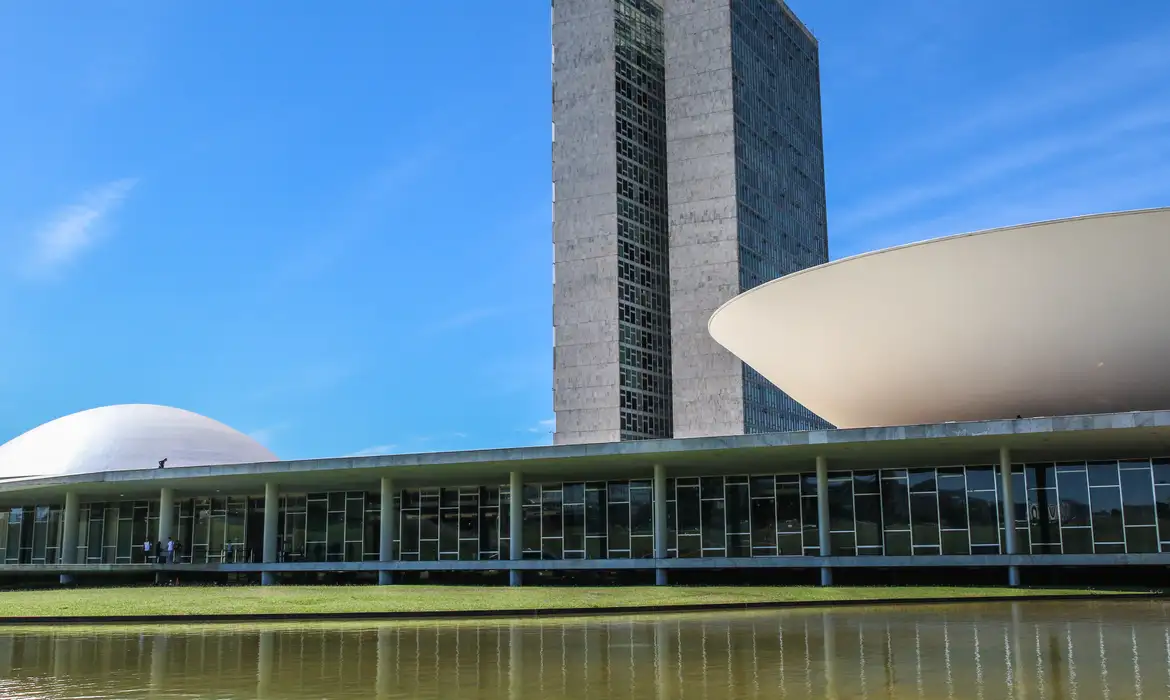
Palace of the National Congress on the Esplanada dos Ministérios in BrasíliaAntônio Cruz/Agência Brasil
Published 05/09/2024 10:55
This Thursday (9), the National Congress will hold a joint meeting to analyze vetoes by President Luiz Inácio Lula da Silva and projects related to aid to cities affected by the floods in Rio Grande do Sul (RS). Among the vetoes that will be analyzed by federal deputies and senators, there are those that concern the amount of parliamentary committee amendments and the payment flow for individual amendments by deputies and senators in this year’s Budget.
Government members claim that there is already an agreement for Congress to recover R$3.6 billion of the more than R$5 billion vetoed by Lula from parliamentary committee amendments. This amount would be divided as follows: R$2.4 billion would be returned to the Chamber’s committee amendments and R$1.2 billion to the Senate’s.
Regarding the payment schedule for amendments, the so-called “commitment” of resources, the government claims to have an understanding with leaders of the Chamber and Senate to maintain the presidential veto and continue with the schedule proposed by the Secretariat of Institutional Relations.
Veto on ‘little things’
Lula’s veto of a section of the law that limits the temporary release of prisoners from the semi-open regime on commemorative dates is also on the voting agenda. As it is an issue with popular appeal, deputies and senators can take advantage of it to impose a defeat on the Palácio do Planalto and give a nod to the electorate in an election year.
With the veto, Lula allowed “outings” for prisoners to visit their families. The president’s decision generated a reaction from the Parliamentary Public Security Front, known as the “bullet bench”, and other groups in Congress.
Help for RS
Deputies and senators will also analyze bills from the National Congress to assist in helping Rio Grande do Sul. One of them allows the State to receive a greater amount of parliamentary amendments due to its situation of public calamity. The other facilitates the relocation of amendments for Civil Protection and Defense actions in the State.
Senate leaders are expected to meet in the morning to define next week’s agenda and align the last details before the Congress session, scheduled to begin at 10 am.
There are also 30 more presidential vetoes under analysis. The government leader in Congress, Randolfe Rodrigues (no party-AP), has been working to include as many of them as possible for joint voting (through a voting ballot, avoiding spending time on several individual deliberations).
Luggage
The 2022 veto made by then-president Jair Bolsonaro of a bill that resumed free baggage check-in remains on Congress’s agenda. In all the last joint sessions, there was no agreement, and therefore the analysis of the proposal has been postponed.
PL for the taxation of offshore funds
President Lula decided to veto a section of the offshore funds taxation law, specifically the one that defines what a stock exchange is for the purposes of minimum investments in equity investment funds. In the veto message, the head of government stated that the text approved by Congress “excessively restricts the definition”, as “only multilateral centralized negotiation systems” were covered, excluding bilateral centralized negotiation systems.
Land regularization in the Amazon
Lula vetoed several sections of the bill granting land regularization in the Amazon. He claimed that the proposal “incurs a defect of unconstitutionality in that it proposes to extinguish termination clauses of contracts that have been resolved.”
One of the vetoed sections provided for the end of the resolutive conditions for settlement titles issued until June 25, 2009. This extinction would benefit landowners from up to 15 fiscal modules with property registered in the Rural Environmental Registry (CAR) and without the registration of workers in situation analogous to slavery
Bidding law
One of President Lula’s vetoes to the project that changed the Tender Law affects special engineering services worth more than R$1.5 million. According to the text approved in Congress, bidding of this type must always take place in closed dispute mode. The government understood, however, that this decision “contravenes the public interest” due to the prohibition of open dispute mode.
Another vetoed item allowed that, in the event of termination of the contract of the winner of a bid, a third party, hired directly or in a new bid, could take advantage of any outstanding balance included in committed expenses or in unprocessed unpaid balances.
An excerpt was also vetoed that stipulates that outstanding payments linked to multi-year contracts would not be automatically canceled.
Flexibility in pesticide registration
Congress must also analyze President Lula’s partial veto of the law that relaxes the rules for the registration of pesticides in the country. The president vetoed the section that ends the tripartite regulatory model for registration, preventing the Ministry of Agriculture from concentrating power for this type of decision.
Another section vetoed by Lula was the one that exempted companies from placing warnings on their packaging stating that the container could not be reused.
